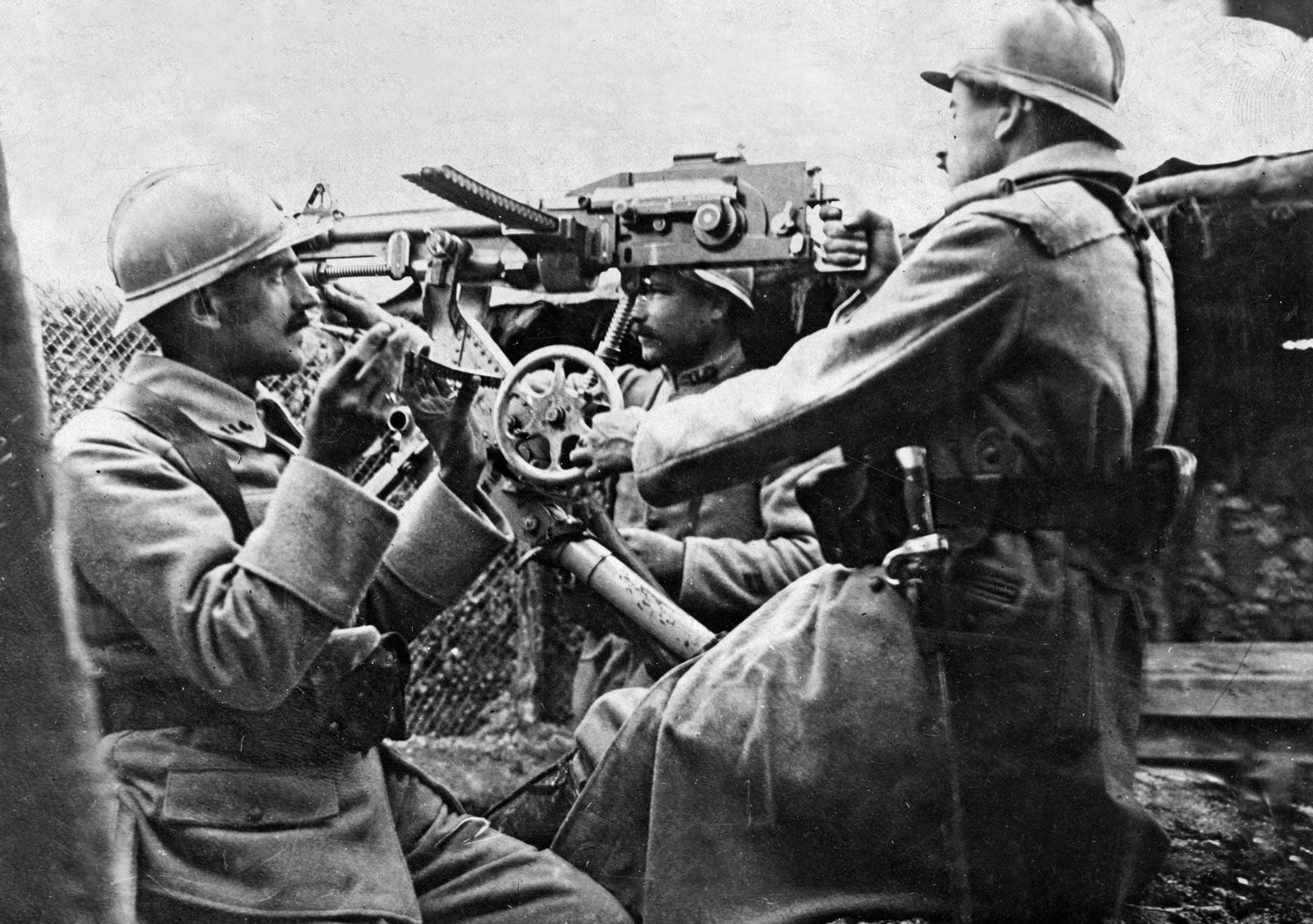Even before the American entry, the Allies had an overwhelming superiority in total population and resources. The Central Powers had in their own Continental lands not more than 150 million people; Britain, France, Russia, and Italy in their own Continental lands had at least 125 million more people than their enemies.
More- over, in their overseas possessions, which included the 315 million people of India, the Allies had many millions more. As for material resources, the Central Powers had, especially in Germany, admirably organized industries and enough coal and iron to fight a long war, but here, too, the statistics were overwhelmingly in favor of the Allies. Moreover, though German submarines and surface raiders seriously interfered with Allied lines of communication, on the whole the Allies were still able to get food and other supplies from their overseas sources.
In the long run, the side with the most men and materials wore down its enemies and won the war, but it was by no means an uneven struggle. The Central Powers won many battles and seemed at critical moments close to final victory. Germany and Austria adjoined one another and had interior lines of communication, which enabled them to transfer troops rapidly from one threatened front to another, and had for years been firmly allied.
Most important of all, Germany was ready for war, with an efficiently organized military machine and a good stock of munitions. The German people were united in support of the war, and they enjoyed the great psychological advantage of being on the offensive, of carrying the war to the enemy.
By contrast, geography and language separated the western Allies from Russia. German control of the Baltic and Turkish control of the Straits proved a serious obstacle to communication between Russia and its allies, which had to take roundabout and difficult routes. For the Allies, transfer of troops between eastern and western fronts was militarily almost impossible, even had it been politically possible.
Russia, Britain, and France had only recently come together, and then not as close allies. Each had many sources of conflict with the others. They had no experience of mutual cooperation, no common language. France and England were democracies, and though the peoples of both supported the war, Britain, in particular, was unused to centralized military and political control.
Unified military planning and administration were never achieved between Russia and the western Allies. Even among Britain, France, and the United States on the western front, unification was not achieved until the French general Ferdinand Foch (1851-1929) was appointed commander in chief in 1918.
Finally, of the three great Allied powers in 1914, only France was ready, and France, with only 39 million people against Germany’s 65 million, was the weakest of the Allies in manpower. Britain was well prepared on the sea, but the navy could not be of direct use against the German army.
The situation in Ireland remained tense. Russia had universal military service and a huge army, but it had vast distances to overcome, an inadequate railway system, a less-developed heavy industry, and a military and political organization that was riddled with inefficiency and corruption.

